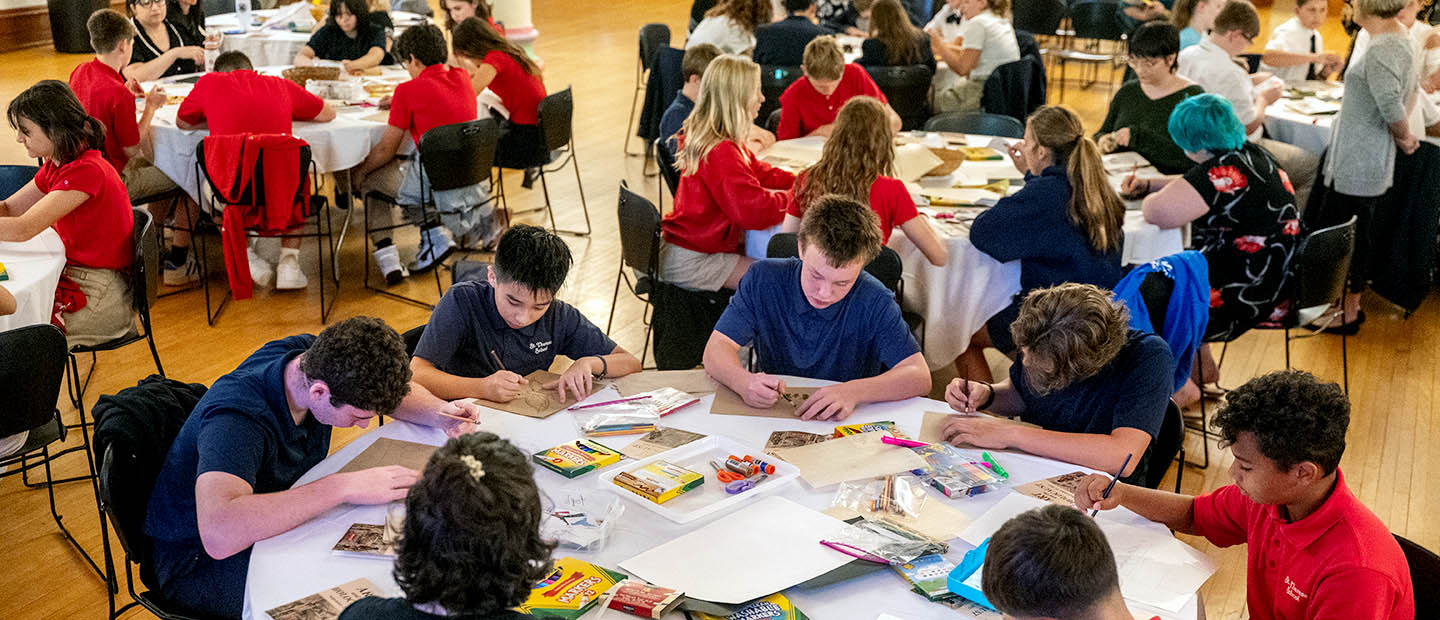Music Therapist Chris Welch Learned to ‘Make it Meaningful’ While at Seton Hill
Chris Welch is a music therapist at Napa State Hospital in California. Chris graduated from Seton Hill with his bachelor of music in music therapy in 2015. Recently, he took the time to answer a few questions about his Seton Hill experience, and how it led him to a career he loves.
What inspired your decision to attend Seton Hill?
The small class sizes at Seton Hill spoke to my need for a University where I could have a more intimate learning environment. Being in a classroom where my professor knew my name made Seton Hill a desirable place to spend my undergrad years.
What made you choose the Music Therapy Program?
Growing up I always wanted to do something with my musical talents. I knew I wanted to help people, but did not necessarily want to teach music. When I attended a High School Choral Festival that was being hosted by Seton Hill in 2010, I learned about the Music Therapy Program at Seton Hill. I did my research and found an article about former U.S. House of Representatives member Gabby Giffords using music therapy to regain her ability to speak and I was sold!
What skills did you gain while in the music therapy program and how do they aid you in your current career?
The biggest skills that I gained while in the Seton Hill Music Therapy Program were to think on my feet and put meaning behind everything that I do. The head of our Music Therapy Program, Laurie Fox, coined the phrase “Make it Meaningful” in our Methods of Music Therapy classes to remind us to put thought and meaning into our clinical interventions. This phrase rings in my head when I'm planning group and individual music therapy interventions for my patients at Napa State Hospital.
"The biggest skills that I gained while in the Seton Hill Music Therapy Program were to think on my feet and put meaning behind everything that I do."
Can you tell me more about your position at Napa State Hospital?
I’ve been working at Napa State Hospital since 2016 as a music therapist. Napa State Hospital treats patients that have been found Incompetent to Stand Trial due to a mental illness, patients who have plead Not Guilty by Reason of Insanity to a crime that they have committed, and patients who are conserved by the state due to the severity of their mental illness. I have worked primarily with patients that are Incompetent to Stand Trial and patients who have plead Not Guilty by Reason of Insanity doing group and individual music therapy interventions. These groups range from Community Reintegration Cover Band groups, song writing groups, Court Competency Through Music, Community Reintegration Hip Hop and Business Groups, Coping Skills through Music, Music Therapy Through Musical Theater, and more. Besides groups, each music therapist at Napa is part of an interdisciplinary treatment team that consists of a psychiatrist, psychologist, and social worker to handle their unit’s patient’s care.
What is the most rewarding part of your job?
It’s hard to pick one thing that I love about my position at the hospital. I am very fortunate to work in an institution that values and supports music therapy, as well as other creative therapies such as art, dance and movement, recreation, and occupational therapy. We are given lots of resources and freedom when it comes to group ideas and supplies. Due to this, I get to collaborate with all of these modalities and come up with big projects. Before the COVID-19 pandemic, I was given the opportunity to direct the first-ever recorded, patient-written-and-performed musical. I then presented it at the 2019 National Music Therapy Conference in Minnesota while discussing the therapeutic effect of musical theater in a forensic psychiatric facility. Being able to do these big collaborations and events at the hospital is easily my favorite part of my job.



